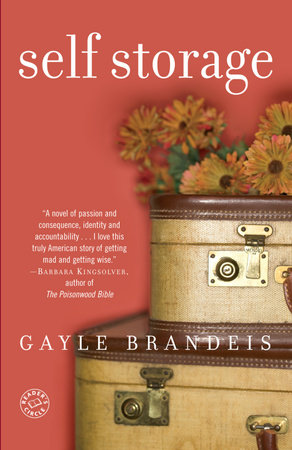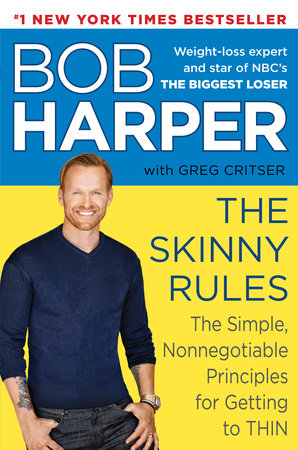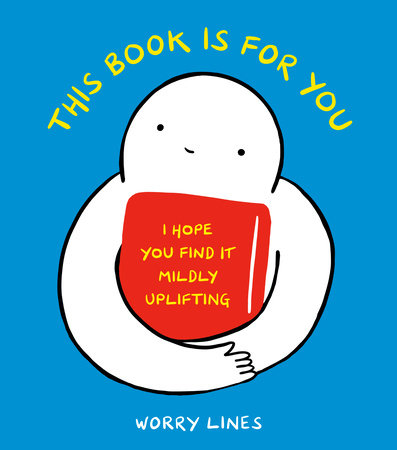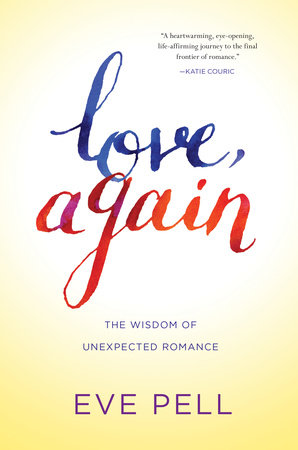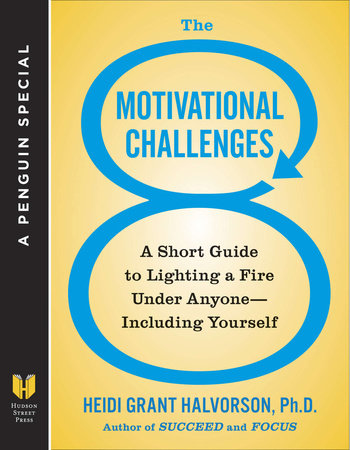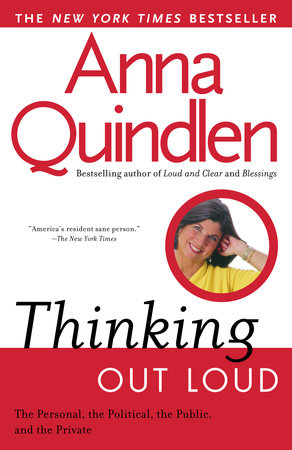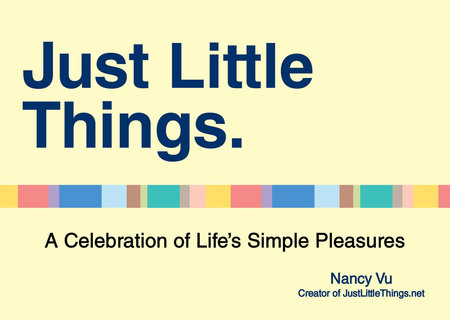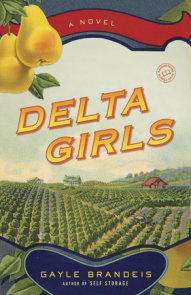Author Q&A
A Conversation with Gayle Brandeis
Laraine Herring, author of Lost Fathers: How Women Can Heal from Adolescent Father Loss and Writing Begins with the Breath: Embodying Your Authentic Voice interviewed Gayle Brandeis about the novel Self Storage. Gayle and Laraine attended an MFA program together at the Antioch University in Los Angeles and have remained close friends and writing companions.
Laraine Herring: You’ve said that fiction allows us to slip into others’ skins—to see through different eyes. How is the process of creating that other perspective different for the writer than for the reader?
Gayle Brandeis: Readers have the luxury of jumping directly into the story, slipping it on like a magic jacket. The writer, on the other hand, has to make sure that the stitching is correct, that the cloth has integrity, and that it won’t come apart at the seams. It’s a huge responsibility, writing about another culture—you want it to ring true, to have an authentic foundation. It takes a lot of humility and chutzpah all at once. Then again, all fiction does. You probably remember my agony over writing The Book of
Dead Birds when we were at Antioch. I struggled so much with my right to write Ava’s story,my right as a white woman to deign to explore the life of a woman whose mother was Korean and whose father was African-American. Ava wouldn’t leave me alone, though—she wouldn’t let me walk away from the story,and I had to build up my courage and disappear into the work as fully as I could. And ultimately I found that I had much more in common with Ava than I realized. In Self Storage, I hoped to convey our common humanity through Sodaba, even though it can quite literally be veiled by our differences on the surface. I wanted to get down to the beating human heart we all share.
LH:What lessons has your work taught you?
GB: My writing is constantly teaching me lessons. One lesson I keep relearning is the importance of getting out of my own way. Each story has its own rhythm, its own flow, and if I try to control its unfolding, it will often end up stilted and unsatisfying. Writing has taught me to trust the moment, trust the creative process. It has taught me to not take myself too seriously (but at the same time, to take the work itself seriously.) It has taught me to be open—to not judge characters (including real ones!). To be
receptive to inspiration wherever it wants to come from. To not be afraid of the dark. To take risks. To pay attention to life. To have fun!
LH: After a novel is finished, are you ever surprised to discover what you’re really writing about? Is that different from what you thought you were writing about? I’m thinking not so much about particular plot points, but about deeper emotional truths of a writing project.
GB: Oh my goodness, yes. And the truth is often much smaller and more intimate than I lead myself to believe. Sometimes I’m convinced that a book is about some big concept, but it turns out to be more about a quiet moment between two characters. Self Storage started out almost as a thesis about the self—I wanted to explore what the self means in the context of our culture today. Later I realized that the book was much more about the characters’ desire for and fear of connection. It operated on a much more human scale than I had imagined. I love how stories find their way into their own truest heart, almost in spite of the author’s intention; my writing is definitely smarter than I am!
LH: Our mentor at Antioch, Alma Villanueva, stressed the importance of dreams in fiction writing.Have dreams ever played a role in your writing process?
GB: A fever dream changed the whole course of The Book of Dead Birds; I had been writing in the third person because it felt safer. I could be an observer, not claim to live inside Ava’s skin. Then I came down with strep throat and had intense fever dreams in which I became Ava.When the fever broke, I realized Ava needed to tell the story in her own voice. I’m not sure I would have made that shift without that dream; it was the shift that brought the book to life for me. Writing dreams aren’t always that productive, though. Once I dreamed I was in a movie theater. On the screen was a close-up of a giant book I had never seen before. I read each page, and then a giant hand would turn to the next page. I read the whole novel that way, completely engrossed. I woke up thinking that all I had to do was transcribe the dream, and the novel on the screen would be mine. Unfortunately, by the time I sat down to write, I couldn’t remember a single word of it.
LH: Let’s shift to Self Storage now. I think there’s something unusual about a culture that has to rent space to store “stuff ” that doesn’t fit at home. Do you think the plethora of self-storage units across the country is indicative of something larger at work in the fabric of America?
GB: In 2003,when I was on a book tour for The Book of Dead Birds, I met a woman on an airplane who told me she supplemented her income by going to self-storage auctions and selling her winnings at yard sales. Though “self storage” signs had piqued my interest for years, I had never heard of self-storage auctions before. I actually wasn’t supposed to be on that plane to begin with: I took an earlier flight to be home with my family; my mother-in-law’s husband, Jack, had just been diagnosed with brain cancer. He died a few days later. I dedicated the book to his memory—I wouldn’t have known about self-storage auctions if I hadn’t changed flights. Of course, I’d rather have Jack in the world than the book. The ubiquity of self-storage establishments does speak volumes about our consumer culture. I imagine it’s indicative of a deeper hunger—we keep trying to fill a hole inside ourselves with stuff, but those calories are empty.We buy more and more until we don’t have room for it, but we’re still hungry, so we keep buying, as if the next purchase is what will make us whole.
LH: Did you attend any auctions at self-storage centers? If so, what prevailing feelings did you notice at the auctions?
GB: I attended a couple of auctions as I was writing the book, and then a couple more before the book came out so I could pick up some boxes to open at readings. I really wanted to share that moment of discovery with the audience. I invited anyone who asked a question to come choose something from the box to bring home, and people were very excited to come claim their treasure. The auctions are quite congenial, sometimes even raucous—a real sense of community develops among the bidders. There is
such anticipation when the metal door is lifted—what gold mine or trash heap waits inside? At the same time, a sense of sadness permeates the whole enterprise. The lots up for auction hold the evidence, the remnants of people’s lives—people who most likely have fallen upon hard times—and it can make the bidders feel like vultures circling a carcass. I started to feel a bit sick about what I was doing at my readings. I had to stop bringing boxes to my events. I’ve held onto the items that seem most personally
significant—homemade Christmas ornaments, photos of children, et cetera—and I’m going to try to track down the original owners so I can return them.
LH: Flan’s husband, Shae, spends most of the novel on the couch watching soap operas. Flan’s frustration with him is an underlying tension throughout the novel. How did you, as the author, find empathy with his character?
GB: I think we all have a couch-potato side to ourselves, a side that just wants to give in to entropy. I remember when you and I shared a beach house during our Antioch residencies, our friend Peggy once called me a house cat because of how I would lounge around and read and not necessarily be “doing” things all the time. So I can relate in a way to Shae (although I think that Shae’s lounging comes from fear, from feeling stuck, not from a desire to luxuriate). I also wanted to give Shae a chance to redeem himself, to get up off the couch—and thank goodness he did!
LH: The heat seemed almost to be a character in the novel. You live in the desert in California. I spent twenty-five years in the Phoenix desert. It’s hard to really describe the heat, the pervasive, unrelenting sunlight and dryness that exists most of the year in these regions. As you were writing, did you consciously think about how weather can oppress?
GB: I realized recently that I keep writing about heat. The Book of Dead Birds takes place in the summer in the desert; Self Storage takes place in the summer in the (irrigated) desert.My new novel takes place during a particularly hot summer in Chicago. I wasn’t thinking consciously of how oppressive the summer heat can be in Riverside, but I’m sure it seeped in subconsciously as I wrote Self Storage. Perhaps my next novel should take place in the snow!
LH: Self Storage strikes me in many ways as a commentary on the changing social structure of America, and I think you use Whitman in part as an anchor throughout the text to pull us back to the struggle between individual identity and community identity. I think about how many people live behind gates, or behind block walls, especially here in the west—how many people don’t know their neighbors and don’t know how to create community.Were you thinking in any way about the end of the “rugged individual” archetype in American society in favor of a more sustainable, community-based lifestyle? Is America waking up?
GB: I very much like this interpretation. I think our cultural focus on the individual and self-reliance can be inspiring in terms of people wanting to find their own voice and trust their own vision, but it can also be very isolating. Such a focus makes it easy for us to forget how interconnected we are; we can forget to reach out to a larger community that can nourish us. I set Self Storage in family student housing at the University of California at Riverside because I loved the sense of community when my family lived there in the early 1990s.We would have communal meals and share child care, just like in the book; no one had much money, but everyone had plenty to give. I first encountered Whitman in my junior year of high school. I was very shy and cautious at the time, but there was a part of me that longed for the freedom of Whitman’s long breathless lines. I loved how he connected with absolutely everything, how open he was to experience, to the world. He gave me a sense of possibility that blew my mind. I do think America is waking up.We’re realizing that we need to take more responsibility for our planet—reduce our carbon
footprints, eat locally when possible, recycle, et cetera. It’s very cool to see these issues enter mainstream public awareness and discourse. People are asking more questions now—of the government and the media—which is such a relief after so many years of fear-induced public silence.More of us are beginning to realize that things need to change, and—as Gandhi said—that we must be the change we wish to see in the world. I hope Self Storage reminds people that through tolerance and compassion, we can begin to achieve real change.
